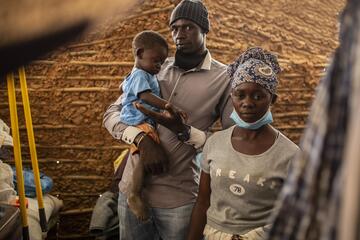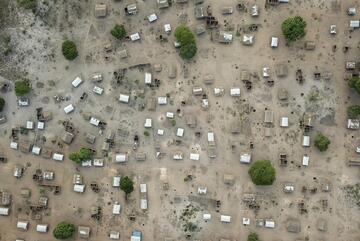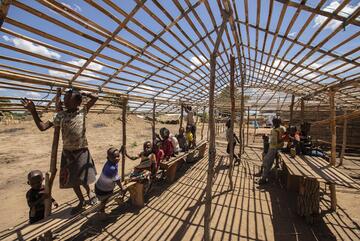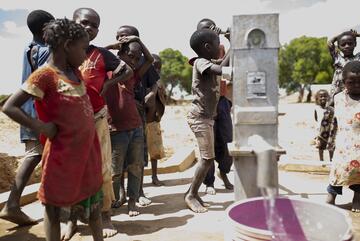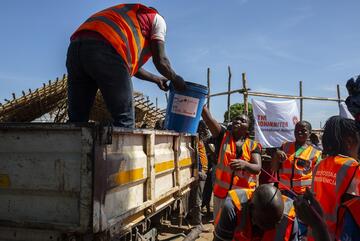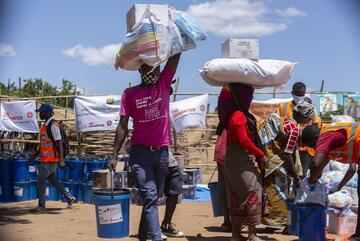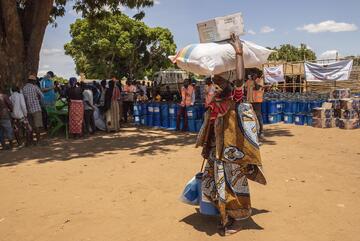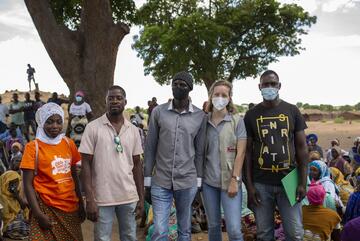Mozambique: Acute water shortage fosters disease
Berlin, 12 January 2022
More than 735,000 people have been displaced in northern Mozambique since 2017, after violence escalated in Cabo Delgado province. Nearly 3000 families live in the Marcuni IDP camp in Montepuez. Johanniter and its local partner Wiwanana distributed relief goods there in December to prepare the people for the upcoming rainy season. Our staff member Sophia Buller fears more cholera outbreaks.
Genito Antonio Buanculo represents more than 8,500 people in the Marcuni IDP camp in Montepuez. The tall 32-year-old man himself had fled with his wife and young son only last year, shortly before armed groups conquered the city of Palma, where he worked for an oil company. He is worried about the situation in the camp. The impression that the army has regained control in the region is deceptive, he says. However, displaced people are turning their backs on the camp. "It is the lack of food and the cholera outbreaks that are driving people to leave the camp," Buanculo says.
Distribution of essential relief items before the rainy season
Simple huts form the camp, barely able to withstand wind and rain. And the rainy season is just around the corner. In mid-December, Johanniter, together with the local partner organisation Wiwanana, distributed urgently needed relief items to 600 families in Marcuni to meet the high demand. Each family received two mosquito nets, washing powder, soap, clothes, and water buckets. Plastic tarpaulins and fortification materials provided through the shelter coordination in the region are used to protect the huts from the coming rains. In parallel, the aid organisation CARE supplied other families in the camp with the jointly planned measure.
Water shortage: only two wells for almost 3000 families
Despite the distributions, the water and sanitation situation as well as health care remain a major problem in Cabo Delgado. There are recurrent outbreaks of malaria, typhoid and cholera, which endanger the lives of young children in particular. "For a camp of this size, there should be at least 18 wells according to national standards. Marcuni has two," explains Sophia Buller, who coordinates Johanniter activities on site. According to her, this leads to an acute water shortage, forcing the camp's inhabitants to use open and unsafe water sources. Marcuni is no exception: "This water scarcity is a problem in almost all districts. It leads to diarrhoeal diseases and cholera outbreaks every year. That is why we will be scaling up our work here on the ground in the coming weeks and months to improve access to water and more appropriate health care for IDPs, returnees and host communities," says Buller.
Background
The province of Cabo Delgado is one of the poorest and most neglected regions in the country. According to the United Nations, 900,000 people across the region are food insecure. Around 75,000 children are acutely malnourished. Johanniter International Assistance has been active in Mozambique since the devastating cyclone Idai in 2019. In the particularly affected provinces of Sofala, Chimoio and Beira, they worked with partners to rebuild agriculture in affected communities and stabilise medical care in rural areas.
